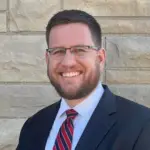My engagement with the “old view,” as my professor of theology called it, had a profound effect on my subsequent studies. How something apparently so commonly held and so clearly and vigorously affirmed could have sunk below the horizon in seventy years of denominational life puzzled, frustrated, and fascinated me. The answer, of course, did not come all at once, but gradually rose to the surface of my studies little by little, layer by layer, and nuance by nuance. Putting the whole story together, as far as I discern it at this point, involves a combination of many factors in the broader Christian world and from within Southern Baptist culture.
One of the slowly percolating and permeating influences came from the doctrinal and methodological narrative of one century from Charles Finney through Billy Sunday, a narrative that called for Southern Baptist interaction in the late nineteenth-century discussions of “Protracted Meetings” and full-time evangelists. This eventually sorted itself into Southern Baptist identity through the influence of L. R. Scarborough. The method had amalgamated elements of virtually each figurehead of the phenomenon and produced a theology of evangelism that focused on the effectuality of human decision. The nature of this focus so elevated the human will that its impact went far beyond changes in the concepts of evangelism and opened a path to other doctrinal changes consistent with a philosophy of human autonomy.
W. H. Whitsitt, famous for his challenge to the pervasive successionist historiography on the origin of Baptists, also inserted into theological education the ideal of consistency with the Academy. Academic engagement and acceptability was gradually elevated as a goal of theological education equal to doctrinally grounded piety, biblical knowledge, and commitment to the truths of divine revelation. W. O. Carver taught from 1896 through 1943 at The Southern Baptist Theological Seminary, from 1900 as missions professor and head of the missions department. His high energy approach to education, comparative religion, missionary theory, as well as biblical studies made the position influential and helped spread his own latitudinarian brand of theology throughout the Southern Baptist Convention. He opposed Calvinism, confessional subscription (even arguing that the adoption of the 1925 Baptist Faith and Message was a movement toward Presbyterianism), fundamentalism (of the Machen as well as the Norris variety), and propitiatory atonement. His last Ph. D. student was Dale Moody, who combined his own irascible personality with Carver’s anti-fundamentalist, anti-Calvinist agenda. E. Y. Mullins, theologian and seminary president, sought a consensus in theology that was neither Calvinist nor Arminian, neither fundamentalist nor liberal, neither obscurantist nor modernist, while trying to negotiate William James’s pragmatism and Schleiermacher’s experientialism as parts of a theology faithful to past concerns but open to and conversant with the present. The theological commitments of Southern Baptists became more muddled when financial debt made denominational unity a matter of intense pragmatic concern. Any theological discussion that gave rise to disagreement was discouraged at the institutional level, avoided as adroitly as possible at the annual Conventions, and thus fostered separate developments of doctrinal loyalty within the convention at large.
Though discreetly diverse within each group, two trajectories emerged from this strange matrix of doctrinal shadows. That which they had in common was the elevation of the rights, prerogatives, and the determining capacity of the human will. In both cases, Calvinism loomed eerily in the historical memory as an inconvenient foil to the respective agendas. On the one hand, the particular evangelistic impulse pressed by Scarborough and sympathetic with resistance to modernism was embraced by one group. On the other, the social impulses of Carver’s vision combined with openness to modernism determined the constituency of the second group. The second group, much more active for the development of structures in the denomination gradually gained the upper hand in determining the public posture of the institutions and agencies. An example of this is the long road toward the adoption of a social action group under convention sponsorship which eventually became the Christian Life Commission [now ERLC] and drew the loyalty of the progressive, doctrinally moderate-to-modernist element in the Convention. The other group centered its energies on pastor’s conferences, conferences on evangelism, and periodic protests when the modernistic tendencies of the other group would indiscreetly bubble to the surface. These groups formed the opposing sides in the Controversy that had its formal beginning in 1979.
More doctrinal complexity developed, however, as more attention began to be given to doctrine and history. Within the more conservative group, confessional Calvinism arose as one of the constituent elements of the Conservative Resurgence. This brought resistance from those who believed that the loss of Calvinism was a welcome desideratum. Among the moderate group, issues of freedom became more clearly enunciated and radicalized to the exclusion of any formative doctrinal principles other than freedom.
The conservative, but non-Calvinist, element expressed the trajectory in this way in the preamble to A Statement of the Traditional Southern Baptist Understanding of God’s Plan of Salvation.
While some earlier Baptist confessions were shaped by Calvinism, the clear trajectory of the BF&M since 1925 is away from Calvinism. For almost a century, Southern Baptists have found that a sound, biblical soteriology can be taught, maintained, and defended without subscribing to Calvinism. Traditional Southern Baptist soteriology is grounded in the conviction that every person can and must be saved by a personal and free decision to respond to the Gospel by trusting in Christ Jesus alone as Savior and Lord.
That statement gives clear expression to what I experienced in my personal journey as a position worthy of being called into question. I have pondered, and am pondering, as to whether it is true that “a sound, biblical soteriology can be taught, maintained, and defended without subscribing to Calvinism.” Likewise, while no Baptist, Calvinist or otherwise, would reject the necessity of human volition in “a personal and free decision to respond to the Gospel by trusting in Christ Jesus alone as Savior and Lord,” biblically, that is not the end of the story. How a person comes to a state of heart to treasure Christ so clearly that he turns from the domination of sin and to Christ specifically as viewed in his substitutionary death and perfect meritorious righteousness is the subject of central explanatory passages (e.g. Deuteronomy 30:6; Jeremiah 31:33, 34; Ezekiel 36:26, 27; Ephesians 2:1-6; 2 Corinthians 4:3-7). Neither the Bible nor historical Baptist confessions leave us without analyses of the foundation of that spiritual phenomenon. Though the human heart can pervert any system of thought, the non-Calvinist system in its emphasis on heightening human autonomy and diminishing divine efficiency creates wider berths for deception about the character of salvation. Also, it participates in common cause of arguing for the primacy of the non-violation of the human will with the more radical trajectory arising from the mid-twentieth-century muddle.
The other group finds Calvinism equally offensive. Calvinism demands too much doctrinal thinking and close, coherent arrangement of biblical truths, and, even more than the non-Calvinist biblical inerrantist, challenges the authenticity of human autonomy as unpolluted by sinful rebellion against divine authority. The discussions consequent upon the Controversy have pushed them to this expression of agnostic Christianity, as expressed by historian Bruce Gourley, executive director of the Baptist History and Heritage Society, a position he views as “Hope in a ‘Dark Age’ of Theology.”
An emerging answer to this dilemma [of the so-called “nones”] lies within the realm of human experience, a middle road between unverifiable religious belief (theology) and empirical knowledge (the world of science).
Early Baptists pointed to this middle road some four centuries ago. Prior to the Enlightenment, Baptists were birthed as liberators of the human conscious [he means “conscience”, I surmise TJN]. In the early days of the scientific revolution, Baptists elevated human experience above theology in the pursuit of God. A personal experience with the divine was the sole universal requirement for membership in Baptist communities. Doctrine was optional: Calvinists, Arminians, Trinitarians, non-Trinitarians, and any manner of doctrinal constructs otherwise — all were welcome in the diverse Baptist family.
For this unleashed and happily untethered element of the Controversy milieu, theology has become “unverifiable religious belief” and, thus, not worthy of attention in this faithless age. “A personal experience with the divine” hardly specifies anything exclusively christocentric about the knowledge of God. While their view of Baptist history is not only absurd, but empirically unverifiable (an idea which should matter a lot to them), it serves their commitment to theological agnosticism quite well. The same is true of the non-Calvinist inerrantist view of Baptist history, or Traditional Baptist views of salvation—it is unverifiable as a pre-dissolution reality but it serves their narrative well. It is a valid question as to whether it declares the purpose of God and serves the souls of men equally as well.




























